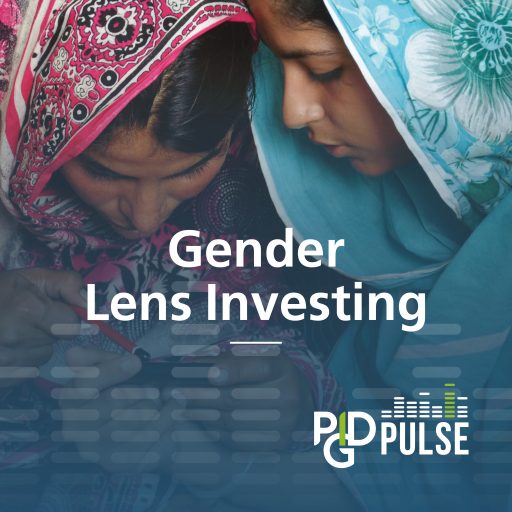
#3 Gender Lens Investing
Gender-blind infrastructure projects lead to massive failings across the board, creating problems that last for decades. Ignoring the needs and expertise of women not only puts them at risk, it also puts a strain on business performance. That’s where gender lens investing comes in.
The practise is gaining momentum across the globe and showcases the strong business case for gender equality, celebrating the power of female leadership, whilst highlighting issues that affect women and girls around the world, like gender-based violence and harassment. In this episode find out how gender equity is vital in addressing both the climate crisis and global post-covid recovery, and learn about the PIDG Gender Equity Action Plan and HSES Safeguarding Rules. On the show are Celia Carbajosa, Development Impact Analyst at PIDG, and Emily Wood, Head of Social Performance and Safeguarding at PIDG.
Latest Episodes

#24 What ‘Impact’ Really Means – And How To Plan and Measure It
What does the word ‘impact’ really mean? Measuring impact in all its forms is central to how PIDG works with partners and local communities to enable long-lasting, meaningful change.

#23 World Day for Safety and Health at Work – The Drivers of Business Success
Good Health and safety performance requires a positive health and safety culture. This is not a nice-to-have - it’s about protecting and saving lives, making projects sustainable and delivering long-term value to your employees and customers. Yet we are still seeing a lack of consideration being given to the importance of Health and safety.

#22 Earth Day – Sustainable Solutions for a Greener Future
As climate change continues to disrupt ecosystems, economies, and communities, this Earth Day we know that sustainable solutions are more important than ever. At PIDG, we believe achieving a cleaner, greener future isn’t just about protecting nature - we must also empower people with the tools to thrive sustainably.

#21 International Women’s Day Special: The Urgent Need To Accelerate Action
This is an International Women’s Day special of PIDG Pulse.